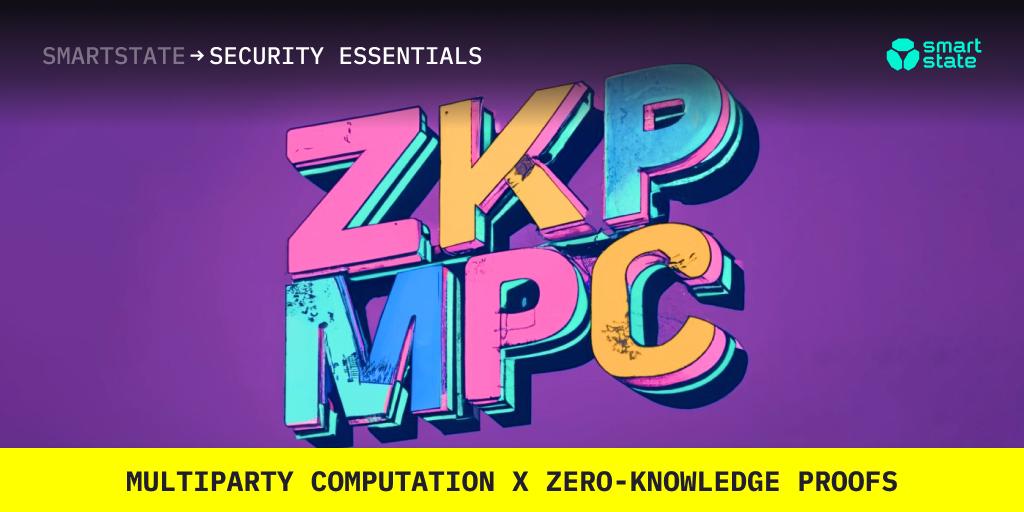Multiparty Computation x Zero-Knowledge Proofs
In the realm of private and secure computations, two powerful concepts have emerged: zero-knowledge proofs (ZK-proofs) and multiparty computation (MPC). These concepts have revolutionized the way to approach privacy, security, and trust in collaborative computations. In this article, we will explore the significance of ZK-proofs in cryptography and how their combination with MPC empowers secure and private computations. We will delve into the technical aspects, advantages, and potential future applications of this powerful combination.
What are ZK-Proofs?
ZKPs are cryptographic techniques that allow one party to prove to another party that a certain statement is true without disclosing any additional info beyond the validity of the statement. They provide a powerful tool for privacy-preserving computations and verifications. Imagine being able to prove knowledge of a fact or statement without disclosing any underlying data or the steps taken to arrive at the proof. This concept forms the foundation of ZK-proofs.
Understanding Multiparty Computation
Multiparty computation is a protocol in the cryptography field that enables several parties to collaborate on a computation without disclosing private inputs. It ensures that each party's private input remains confidential throughout the computation, while allowing the computation's output to be revealed to all parties. MPC has found applications in various domains, including data analysis, ML, auctions, data sharing, etc.
The Power of Combining ZK-Proofs and MPC
When ZK-proofs and MPC are combined, they create a powerful synergy that enhances privacy, security, and trust in collaborative computations. Here's how this combination empowers secure and private computations:
- Privacy Preservation: By combining ZK-proofs with MPC, computations can be performed on data without disclosing sensitive information. Thisenables privacy-preserving computations, where the results can be verified without exposing the inputs or intermediate steps.
- Verifiability and Trustlessness: ZK-proofs provide a mechanism for independent verification of computations. When combined with MPC, each party can verify the correctness of the overall computation with no need to rely on trust in other participants. This enhances trustlessness and ensures the integrity of the computation.
- Input Validation and Security: ZKPs enable parties to verify the validity of their inputs without disclosing the inputs themselves. By combining ZK-proofs with MPC, parties can validate their inputs and ensure the integrity of the computation, protecting against malicious behavior.
- Protection Against Collusion Attacks: ZK-proofs, when combined with MPC, provide protection against collusion attacks in which multiple parties conspire to extract more information than allowed. The proofs prevent colluding parties from gaining additional knowledge about each other's inputs or intermediate values, enhancing the security level of the computation.
- Efficiency and Scalability: Over the years, ZK-proofs have been optimized, resulting in more efficient and scalable protocols. By combining ZK-proofs with MPC, large-scale computations involving multiple parties can benefit from the efficiency gains of ZK-proof protocols.
Future Applications of ZK-Proof Enabled MPC
The combination of ZK-proofs and MPC holds vast potential for future developments and applications. Here are some areas where this combination can make a significant impact:
- Decentralized Finance (DeFi): ZK-proof enabled MPC can revolutionize the field of decentralized finance by providing privacy in applications such as lending, borrowing, and trading, while ensuring regulatory compliance.
- Healthcare industry and Genomic Data: ZK-proof enabled MPC can facilitate secure and privacy-preserving analysis of sensitive healthcare data, including genomic information, advancing medical research and personalized healthcare industry.
- Internet of Things (IoT) and Smart Cities: ZK-proof enabled MPC can enhance privacy and security in IoT apps and smart city infrastructure, enabling private data sharing and collaborative decision making.
- Supply Chain Management: ZK-proof enabled MPC can improve supply chain management by allowing multiple parties to collaborate on tracking and verifying the authenticity of goods or ensuring compliance with regulations, all while preserving the privacy of sensitive business information.
Conclusion
The combination of ZK-proofs and MPC represents a significant advancement in the field of secure and private computations. By leveraging the power of ZKPs and multiparty computation, we can achieve privacy, security, and trust in collaborative computations. As the field continues to evolve, we can expect to see innovative solutions and applications that leverage this powerful combination to address various challenges in domains such as finance industry, healthcare, IoT, and supply chain management.

